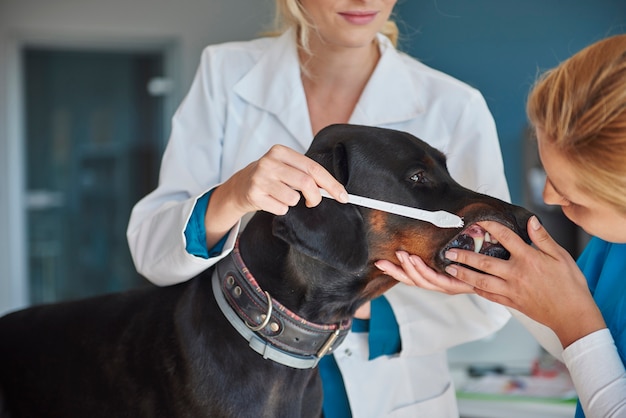How Nutrition Supports Preventive Pet Care in Alpharetta

How Nutrition Supports Preventive Pet Care in Alpharetta
Ensuring your pet’s long-term health often starts with the most fundamental building block of all: nutrition. As a pet owner in Alpharetta, you want your companion to enjoy a vibrant, active life free from preventable illness. But did you know that what you put in your pet’s bowl every day is one of the most important factors in preventive pet care? At Alpharetta Animal Hospital, located at 80 Milton Avenue, Alpharetta, GA 30009, we are committed to helping you make informed choices about your pet’s diet so they can thrive at every stage of life.
In this guide, we’ll explore how balanced nutrition forms the foundation for preventive care, how our veterinary team supports you in making the right dietary choices, and share practical pet nutrition tips you can use right away. You’ll discover how a proper diet can reduce the risk of chronic conditions, why routine checkups are key, and when to seek advice from a "vet near me" for your pet’s unique needs. Whether you are new to pet ownership or looking to fine-tune your companion’s nutrition plan, this blog will provide clear guidance on supporting your pet’s wellness in Alpharetta and surrounding communities. For pet owners seeking comprehensive preventive care, our wellness examination services are designed to keep your pet healthy from nose to tail.
Recognizing When Nutrition Is Impacting Your Pet’s Health
It’s easy to overlook the signs that your pet’s diet may not be fully supporting their health. Many pet owners in Alpharetta wonder if their dog’s dull coat, their cat’s picky eating, or their pet’s unexpected weight gain are simply quirks or indicators of deeper issues. Recognizing when nutrition is playing a role in your pet’s wellbeing can help you address minor issues before they become major health concerns.
Key symptoms that suggest nutritional imbalances include changes in body weight, such as unexplained weight gain or loss, fluctuations in appetite, reduced energy levels, and persistent skin problems like dandruff or excessive shedding. Other signs to watch for are digestive troubles, including frequent vomiting or diarrhea, chronic bad breath, and poor dental health. In puppies and kittens, stunted growth or delayed development can point to dietary deficiencies. If you notice any of these issues, it may be time to re-evaluate your pet’s diet as part of your preventive pet care strategy.
Pets with underlying health conditions or those entering new life stages, such as senior pets or newly adopted animals, may require additional dietary support. Seasonal changes in Alpharetta, such as hot, humid summers, can increase hydration needs and influence your pet’s nutritional requirements. If you’re unsure whether your pet’s symptoms are diet-related, a consultation with a veterinarian near you can bring peace of mind.
Why Nutrition Is the Cornerstone of Preventive Pet Care
A balanced diet does more than just satisfy your pet’s hunger; it is crucial for supporting every aspect of their health. Proper nutrition provides the essential nutrients, vitamins, and minerals that allow your pet’s body to function optimally. This includes maintaining a healthy weight, building strong muscles, supporting immune function, and protecting against disease.
When your pet receives the right nutrition, their natural defenses against illness are stronger. Adequate protein helps maintain muscle mass, while healthy fats support skin and coat health. Carbohydrates provide energy for daily activities, and a variety of vitamins and minerals are necessary for metabolic processes. In growing puppies and kittens, nutrition supports bone development and learning ability; in adult and senior pets, it helps prevent chronic issues such as obesity, diabetes, and arthritis.
Poor nutrition, on the other hand, can open the door to a range of health problems. Pets fed an unbalanced diet may develop conditions like heart disease, dental problems, digestive upsets, or even behavioral issues due to nutrient deficiencies. In Alpharetta, where pets may be exposed to outdoor allergens and fluctuating temperatures, a robust immune system supported by proper nutrition is more important than ever.
Professional Guidance: How Our Veterinary Team Supports Your Pet’s Nutritional Needs
At Alpharetta Animal Hospital, our veterinary professionals are passionate about guiding you through the complexities of pet nutrition as part of our preventive pet care programs. Every pet is unique, and breed, age, lifestyle, and underlying health conditions all factor into the perfect dietary plan.
During your pet’s wellness examination, our veterinarians take a thorough history and perform a comprehensive evaluation, allowing us to make tailored dietary recommendations that fit your pet’s needs. We may suggest specific types of commercial diets, recommend prescription foods for pets with medical conditions, or guide you in preparing balanced homemade meals. If dental health is a concern, incorporating dental-friendly foods and arranging for professional dental cleaning services can help maintain oral hygiene and prevent systemic health problems.
For pets with chronic or unexplained symptoms, our diagnostic laboratory services for comprehensive pet health screening are available to identify hidden issues such as metabolic imbalances, organ dysfunction, or food intolerances. Our goal is to ensure that every pet receives a nutrition plan that supports both immediate wellness and lifelong health.
Our veterinary team stays up-to-date on the latest research in pet nutrition, and we are always available to answer your questions about ingredient safety, food recalls, or new dietary trends. By working together, we can address your pet’s unique needs and help you sort through the abundance of pet food options available in Alpharetta.
Pet Nutrition Tips for Alpharetta Pet Owners
Supporting your pet’s health with nutrition doesn’t have to be complicated. Simple steps like measuring food portions to avoid overfeeding, providing fresh water at all times, and selecting high-quality foods appropriate for your pet’s age and activity level can make a big difference. Introducing new foods gradually and monitoring for reactions helps prevent digestive upset. Additionally, treats should be given in moderation, making up no more than 10% of the daily calorie intake.
For pets with special conditions, such as allergies or sensitivities, hypoallergenic diets or novel protein sources may be beneficial. Speak with our veterinarians before making significant dietary changes, as sudden shifts can sometimes lead to gastrointestinal distress. Remember that nutritional needs can change with age, health status, and lifestyle, so regular checkups are essential to keep your pet’s diet aligned with their wellbeing.
Preventive Steps Pet Owners Can Take at Home
Prevention starts with daily habits. Providing a consistent, balanced diet and monitoring your pet’s weight and body condition can help you catch early warning signs of health issues. Observing changes in your pet’s coat, energy levels, or bathroom habits allows you to notice subtle shifts that may indicate a need for dietary adjustments.
Incorporating regular exercise, such as walks or play sessions, supports a healthy metabolism and prevents obesity. For cats, encouraging activity with toys or climbing structures can help them stay trim and stimulated. Scheduling periodic wellness examinations ensures your veterinarian can track your pet’s progress and make timely recommendations tailored to your pet’s evolving needs in Alpharetta.
Hydration is especially important in Georgia’s warm climate, so make sure your pet has access to clean, cool water throughout the day. If your pet is a picky eater, try offering small, frequent meals or warming food slightly to enhance its aroma. Always store pet food properly to preserve its nutritional value and prevent spoilage.
When to Seek Veterinary Care for Nutrition-Related Concerns
Some issues require more than just an adjustment at home. If your pet experiences persistent vomiting, diarrhea, sudden weight loss or gain, refusal to eat, or signs of pain during eating, it’s time to schedule an appointment with a veterinarian. These symptoms could indicate medical conditions needing prompt attention, such as dental disease, metabolic problems, or gastrointestinal disorders.
Additionally, puppies, kittens, senior pets, and animals with chronic illnesses should have their diets reviewed more frequently to ensure their changing needs are being met. If you have questions about specialized diets, supplements, or home-prepared foods, our veterinary team at Alpharetta Animal Hospital can help you navigate these decisions safely. For pet owners searching for a "quality vet near me" to address ongoing nutrition or preventive care, our team provides compassionate, individualized support at every visit.
If you’re ever in doubt about your pet’s dietary needs or observe changes you cannot explain, reaching out to our veterinary professionals is always the best course of action. Timely intervention can prevent minor concerns from escalating into serious health issues.
Committing to Lifelong Preventive Pet Care in Alpharetta
Nutrition is a powerful tool in the quest for lifelong pet health. By focusing on preventive pet care and making mindful choices about your companion’s diet, you are laying the groundwork for a long, happy life together. Alpharetta Animal Hospital is dedicated to supporting you every step of the way, from routine wellness examination appointments to in-depth nutritional counseling and everything in between.
If you are searching for a "vet near me" who prioritizes preventive care and understands the unique needs of pets in Alpharetta and surrounding communities, our veterinary team is here for you. We invite you to schedule an appointment for a nutrition consultation or comprehensive pet exam by calling (770) 475-7613, or by visiting us at 80 Milton Avenue, Alpharetta, GA 30009. Together, we can build a personalized preventive care plan that helps your pet thrive.
For more information about our preventive care services or to learn about additional pet nutrition tips, explore our website or reach out to our knowledgeable veterinary professionals today. Your pet’s healthiest future starts with the right choices now, and we are honored to be your partner in every aspect of their care.
This blog is for informational purposes only and does not replace professional veterinary advice. Always consult with your veterinarian for recommendations tailored to your pet’s specific health needs. For more resources on pet nutrition and preventive care, visit the American Veterinary Medical Association at www.avma.org.


















